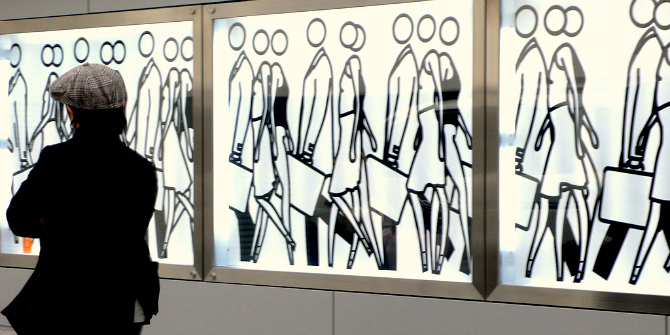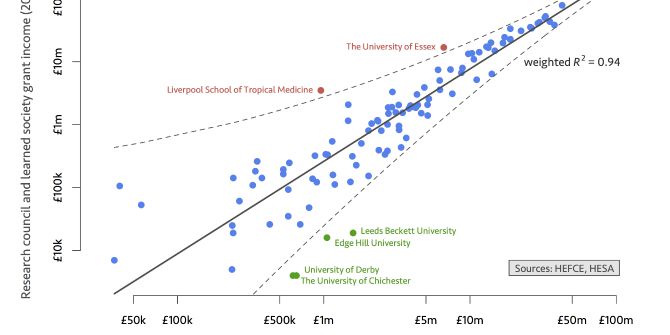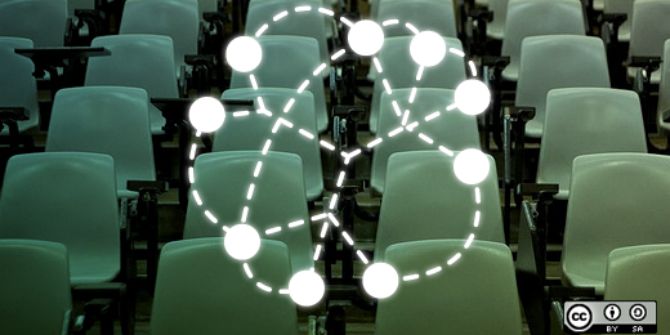 The value of the university cannot be reduced to a monetised figure. By drawing from human development discourse and the capabilities approach, Melanie Walker argues the university can be re-imagined in terms of its commitment to individual freedoms, social citizenship formation and social change. The university should have an active role, engaged in local and global spaces, to foster and support a just and sustainable society.
The value of the university cannot be reduced to a monetised figure. By drawing from human development discourse and the capabilities approach, Melanie Walker argues the university can be re-imagined in terms of its commitment to individual freedoms, social citizenship formation and social change. The university should have an active role, engaged in local and global spaces, to foster and support a just and sustainable society.
We think that the non-market goods of higher education need serious reinvigoration – as a public good (benefiting the public at large for example by educating professionals committed to public service); a social good (making diverse contributions to others and to future persons beyond one’s own interests, for example, through service learning in communities or regional development); and a commitment to the common good and associational life. In our new book published this year, we are therefore deeply concerned with questions such as: What and how could universities contribute to building decent societies and inclusive human development? What would a university which took human development values seriously – empowerment and participation, equity, security and sustainability, – look like and what would it do?

Such an approach conceptualizes universities as crucial spaces for the formation of social citizens in times of growing inequality and challenges to social cohesion across Europe. As philosopher Martha Nussbaum (with Amartya Sen the leading proponent of the capabilities approach to human development), explains ‘cultivated capacities for critical thinking and reflection are crucial in keeping democracies alive and wide awake’.
Thus, in our book, Human development, capabilities, and universities of the twenty-first century, we and our authors challenge an instrumental view predominant among policy-makers and governments and even in university leadership and management that prioritises universities’ human capital contributions to the economy and higher education as a lucrative service for sale globally. In this policy world knowledge is money, dislocated from people and what matters to them. Non-market commitments become obstacles to the commodification of knowledge.
Given the current emphasis on ‘employability’, we say that while education can enhance human capital, people benefit from education in ways that exceed its role in human capital for commodity production. If we pursue Amartya Sen’s argument that ultimately what matters, is what freedoms a person has, then a human capital model does not do well. Even acknowledging the importance of a job to social inclusion prospects – and the obverse, unemployment to social exclusion, an educational focus on employability and jobs tells us nothing about the quality of work, or whether or not people are treated fairly and with dignity at work, and what choices they had in taking a job. Capabilities demands a larger scope of benefits from education, which include enhancing the well-being and freedom of individuals and peoples, improving economic production and influencing social change
The view of the university that we propose in this book resonates with public, social and common good values and ideals based and distinctively on the principles of the human development approach. Human capabilities formation is human development and human development demands human capabilities.
Notwithstanding the challenges presented by the current conjuncture of global politics and inequalities, our perspective is neither utopian nor naive. Universities everywhere have the potential to act for reproductive or transformative ends. In our book we and the contributing authors make the argument for transformative higher education operationalized as social citizenship capabilities formation among graduates and institutional commitments through teaching and research, both to producing knowledge and to widen social responsibility.
We are not alone in making this case. For example, the Preamble of the Magna Carta of European Universities prepared in 1988, and the Talloires Declaration of 2005. Besides international declarations, many academic studies of higher education have elaborated and defended this expansive perspective on what a university might and should be. Among them, we note especially the writing of Martha Nussbaum. The common point is that the university should not be distant from the tremendous problems the world faces nowadays – environmental challenges, social injustices, armed conflicts, intolerance, abuses of and lack of respect for human rights – and that it should have an active role, engaged in local and global spaces, to foster and support a just and sustainable society.
To take up this considerable challenge of reimagining universities in the 21st Century, our book adopts an interdisciplinary and plural perspective, to include 22 authors from several backgrounds: education, ethics, engineering, economics, etc.; South and North perspectives (China, South Africa, United States, México, England, Spain, Ireland and The Netherlands); and experienced scholars alongside young authors because both are important to reimagining the 21st Century University. The book comprises three sections: (i) Theoretical debates linked with human development and the Capability Approach (CA) and other theoretical proposals; (ii) Policy debates and practices; (iii) and, seven case studies where CA has been useful to reimagining a different pedagogy. These cases include USA and Ireland, Spain and The Netherlands and México.
We and our authors acknowledge that we work in a non-ideal world but the book is also an argument for changing what we can and showing that such change can be possible. In the book to capture this deep responsibility we quote from the tremendously powerful Nobel Prize acceptance speech in 1993 by the author Toni Morrison. She writes:
Is there no context for our lives? No song, no literature, no poem full of vitamins, no history connected to experience that you can pass along to help us start strong? … Make up a story. Narrative is radical, creating us at the very moment it is being created. We will not blame you if your reach exceeds your grasp … We know you can never do it properly – once and for all. Passion is never enough; neither is skill. But try.
Our book makes a case for trying, for a new narrative about universities, for social citizenship purposes and social change – most especially in austere times. 
Human development, capabilities, and universities of the twenty-first century, Routledge, 2013, edited by Alejandra Boni and Melanie Walker
Note: This article gives the views of the author, and not the position of the Impact of Social Science blog, nor of the London School of Economics.
Melanie Walker is a South African research chair in higher education and human development and senior research professor at the University of the Free State in South Africa. She is also foundation director of the Centre for Higher Education and Capabilities Research which undertakes a programme of research capacity building with graduate students and early career researchers and conducts research projects.








1 Comments